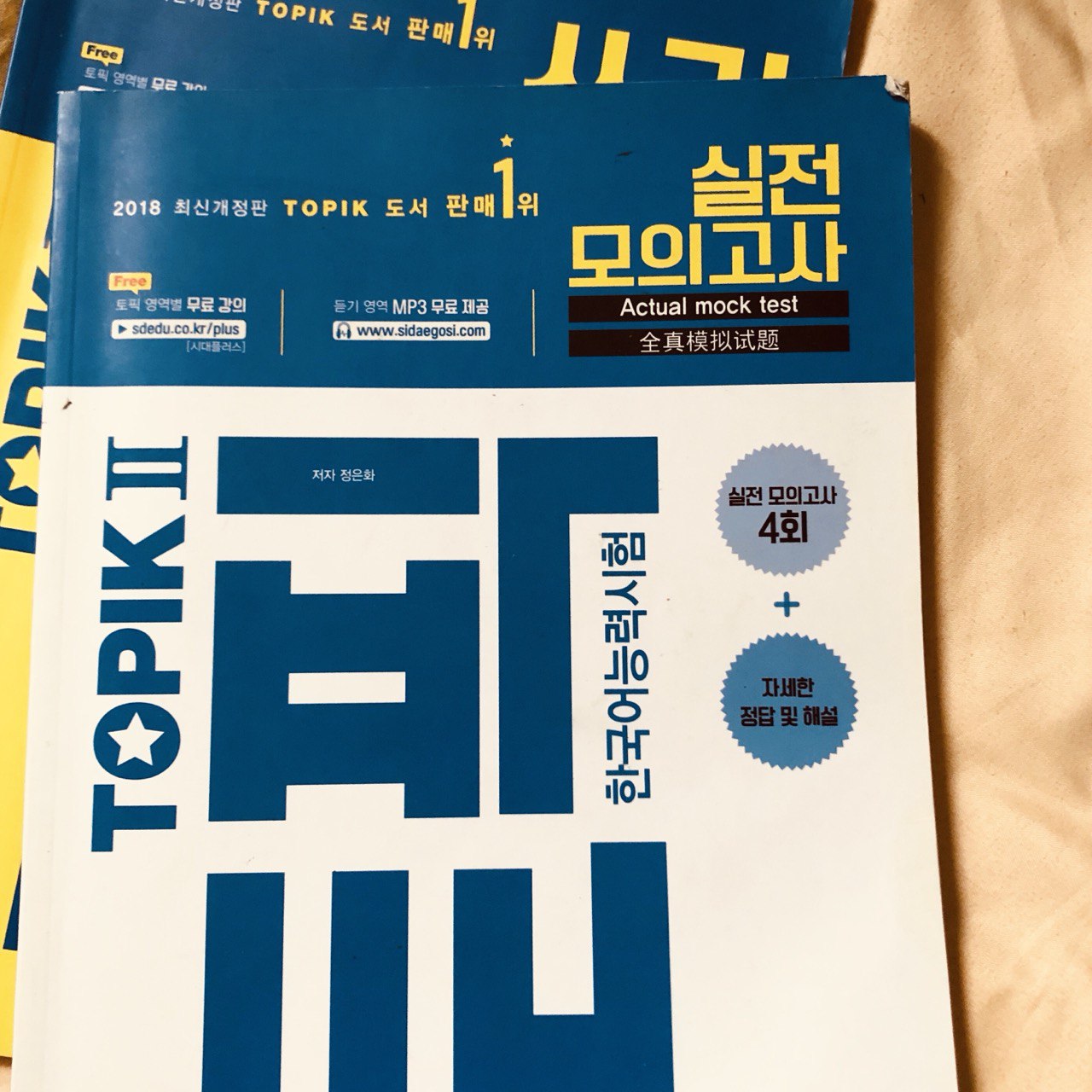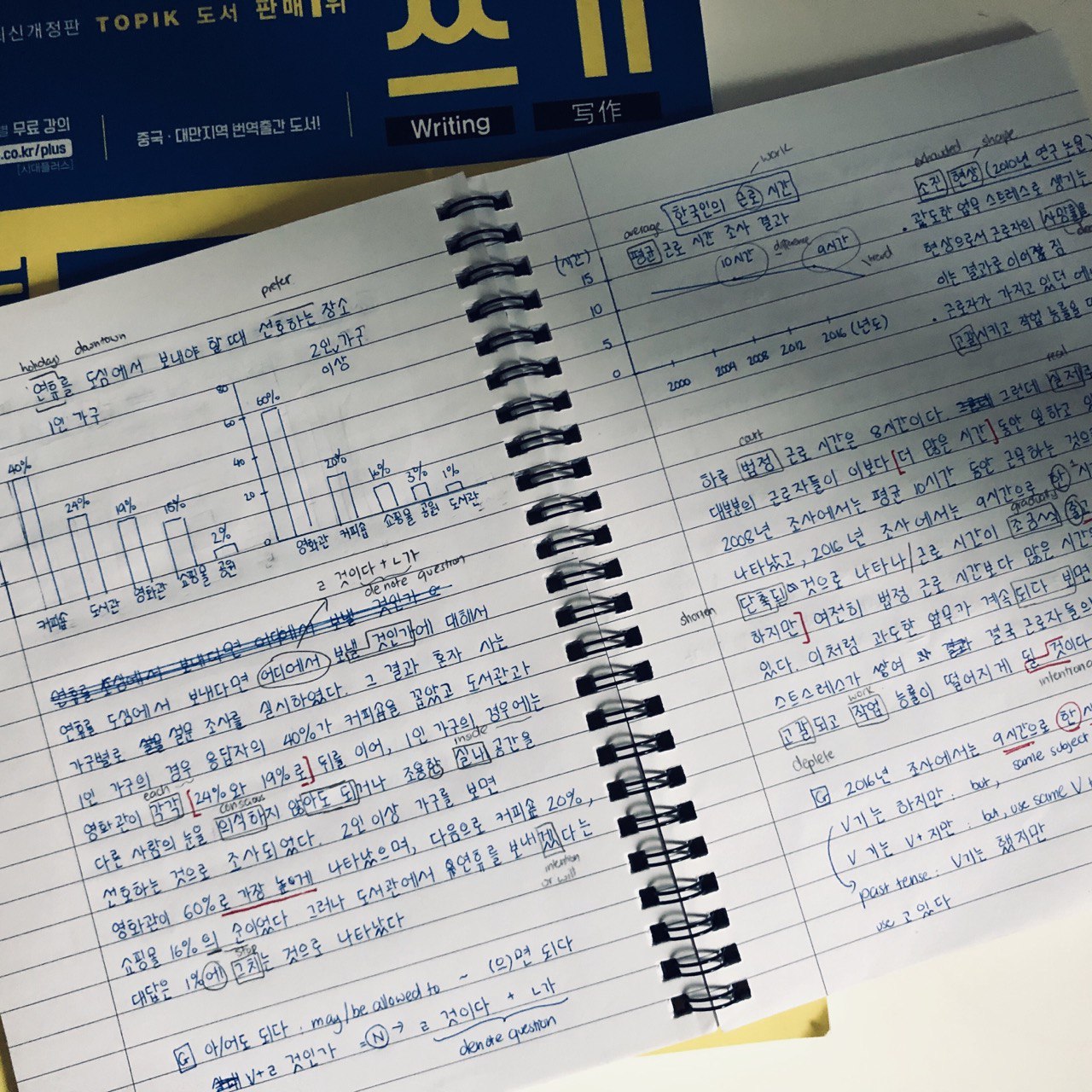Korean self-study journey
My Korean self-study journey for 2+ years
Why I self-study Korean?
Well, I actually started studying Korean in 2016 (around there) but it wasn’t self-study at that time. I went to tuition center in Tanjong Pagar (SEJONG language school), then I changed to ezSAM language centre in Orchard. I think the journey was roughly 1-2 years but I realised my Korean skill was not great compared to the 2 years I spent (partly because of me not practising enough at home). And 1 more thing I didn’t like about going to tuition center is the fixed schedule, though it was just once a week. Thus, I decided that I can do better by studying myself.
Self-study phase 1: Start with overestimation and end with reality
Start with overestimation (or motivation)
Somehow at that time I was so excited to make a big deal about studying Korean. I researched online best books for TOPIK preparation and I found this.

Then I went to Popular bookstore to spend $100+ on a set of 3 books. It took me about 1 month to finally admit that they were not best utilised. If I had another chance, I would tell myself to not overestimate my ability and motivation. This was a mistake because I would probably just need the writing book to practice writing (as it has answers). I can practice reading through mock tests and past tests which can be downloaded online for free. Listening is useless because it gave me CD which I couldn’t use anyway. I eventually had to find the recording in Youtube.
End with reality
I went home and started studying the book chapter by chapter. Self-study means a lot of Google/Naver translations, head-scratching moments because this sentence didn’t make sense even I Googled it and a lot of searching “grammar grammar structure”. No one explained to me that I’ve been understanding this sentence wrongly. I struggled with new words, new grammars and weird sentence structures as the whole book was written in Korean. During this period (and even until now), I appreciated whoever runs this website How to study Korean (Link). The amount of effort in explaining every single grammar pattern is just top notch. I learnt a lot from there.
Reality hits me. This process lasted for few months with not-so-frequent practice. My motivation quickly faded after that. So I needed a new strategy: a flexible yet helpful companion.
Self-study phase 2: Seek help with balance
I found out about italki. My thoughts on italki were written here. Up until this point, it’s been 9 months since I started italki. Overall, I enjoyed the experience overall. I was a bit too excited at first but gradually, I came to get a balance between studying with teacher and practising on my own. I think italki is best at helping me improve my speaking and listening skills. For reading and writing, it’s actually better if I try to do on my own and have a list of questions to discuss with the teacher. I made a mistake at the beginning, which was to focus too much on reading and ignore other skills. Luckily, the teacher suggested other types of exercise and made small talk with me (to improve speaking skill naturally). That helped shift my balance. With italki, I forced myself to do homework thoroughly before taking lessons with teacher because I have to book her time in advance. Without preparation, I wouldn’t book her schedule. After few months, I do see myself improve in getting more right answers for the reading test.
Self-study phase 3: Rote learning works
Recently, I paused my learning with italki to focus more on writing. How I improved my writing is to write more, obviously. But I figured out I should start with memorising other people’s writing instead of just writing without knowing what I’m doing. I picked few short essays to describe different types of graphs to memorise to the tee. Of course, I made sure I understood the paragraph, words and sentence structure. I kept mumbling every single word in the sample essay. I memorised, talked out loud few times and wrote down the essays 2 times. That helps me understand how grammar is used in sentence and what is considered as a normal sentence. I was so proud that just after 2-3 weeks, I can now write a sensible 200 word essay/paragraph. This is something I couldn’t achieve in the first 3 years.

I also realised I had to translate a lot of new words during this process but these words didn’t seem to register in my head after 5 minutes. I think it’s because of no-frequent exposure to the word. Other people online suggested Flashcard apps like Quizlet but somehow, I don’t find it helpful (after trying, of course). Hence, I created this Chrome extension - Flashcard clock to help me with learning new words. It allows me to add the word that I’m searching in Google Translate into my collection. Everyday, at a set timing, the extension will pick a word from the collection randomly and show it to me with its meaning. There are 2 things I believe it could help me memorise better: More exposure to a word and a no-context show up that might stands out my mind at that point. I’ve been trying my extension so far, and I remembered few more new words (I hope).
Self-study phase 4: Get back to the game
I plan to switch teacher in italki, to a normal community tuitor to improve my speaking and listening skills mainly and reading and writing occasionally. I also use italki community to seek help on any reading/writing part I have questions. My plan for TOPIK is this October but I know I’m not ready yet. I need more time to hone my skill. So TOPIK, I will see you soon, but not October.
Self-study: General
Every time I manage to crack a mini-level in Korean learning, I feel motivated all over again. That’s the beauty of self-study I think. It has a lot of ups and downs, that makes the improvements more significant. If I go to centre, I would probably take this improvement for granted and I won’t probably have much motivation as I do now. Self-study experience teaches me to be humble, resourceful and to accept failures as a shoulder shrug and move on. My goal for Korean is to be able to watch Korean drama/reality show without subtitles. Hope that day will come soon.